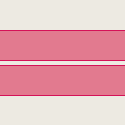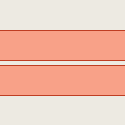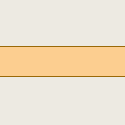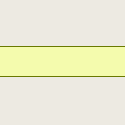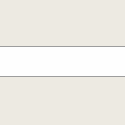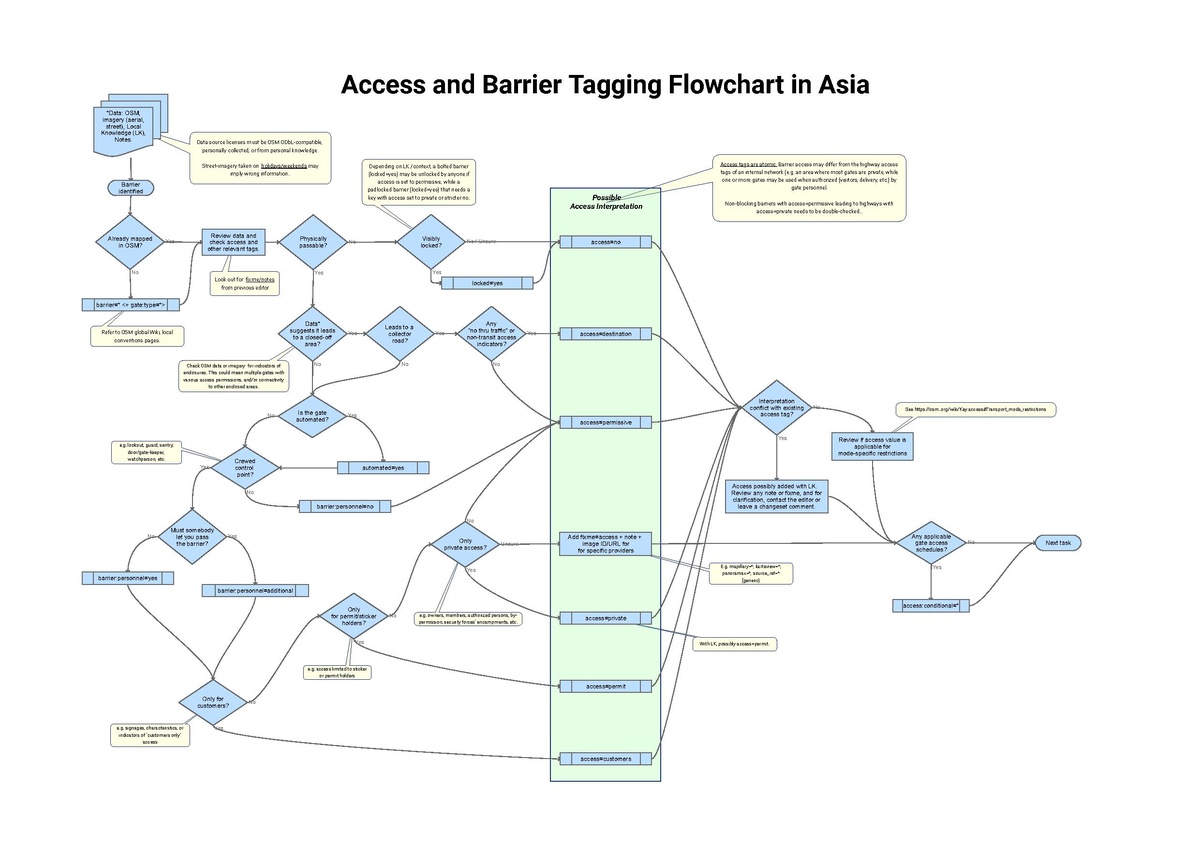Philippines/Mapping conventions
Roads
Classifications
The following guidelines are in use since 2019. This is not an exhaustive list, and the listed definitions is intended to cover the most common possible cases. For a comprehensive guide on road classification, covering factors that influence choice of classification, see Philippines/Mapping conventions/Roads/Classification.
| unclassified | residential | service | track |
|---|---|---|---|
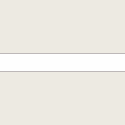 |
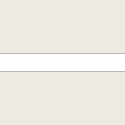 |
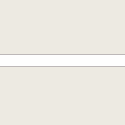 |
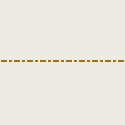 |
Do not use this if classification is unknown (there is |
|
|
|
| path | footway | cycleway |
|---|---|---|
 |
 |
|
|
|
|
Access
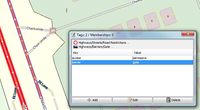
- Main article: key:access
Access restrictions can be added on roads, barriers and also on some POIs like parking lots and sports grounds.
If an access restrictions only applies to certain modes of traffic then more specific access tags can be used (e.g. motor_vehicle=private or bicycle=no).
More specific access tags always overwrite the more general ones. For example access=private together with foot=yes means that access is restricted for everyone except pedestrians.
| Value | Description | Who is allowed | Common characteristics | Examples |
|---|---|---|---|---|
| permissive | Road open to public, but no public right-of-way | Everyone | Permanently open gates, abandoned guardhouses, security guards not checking access credentials | Open subdivisions, business parks, commercial and retail compounds |
| private | Road not open to public | Residents, visitors, deliveries, employees | Gates, security guards, signs like “no sticker/ID, no entry” | Gated subdivisions, private properties, driveways |
| destination | Road open to public, but through-traffic prohibited | Residents, visitors, deliveries, employees | Legally binding signage, no physical access control | Village Shopping Center in a Gated Township where Non-Residents are allowed |
| customers | Access only for customers | Customers of store, business, amenity, etc. | Customer parking lots | |
| permit | Permit required, but easily obtainable by anyone | Everyone that has permit | Hiking trails in protected areas | |
| no | General public has no legal right of way. | Nobody | Roads closed for physical (e.g. damaged infrastructure, construction, or flooded roads, etc.) or by mandate (illegal to use.). | Highways in construction, or areas where security forces are operating. |
Barrier access tagging flowchart:
Extra notes on gate access:
- Using local knowledge, street-level imagery, available notes, or inference: like the presence of some existing elements in OSM data, or as seen on aerial imagery (e.g., roof, cars parked on gates, etc.), may serve as extra clues to help in the interpretation of the gate access.
- The access restriction on a gate is primarily based on the legal rights/intentions of the owner/operator of the gate (not just the owner of the road/s in a bounded entity).
- Gate's access value may not always be equal to the connected highway's access value.
Use cases in the Philippines:
Some roads' access restriction values (inside a gated community), may have "equal or lower" restriction values than the gate (that directly controls them). Examples:
- A resident of a gated community is allowed to use any entry gate (both access=private and access=destination), while a guest can only use the visitors' gate (access=destination). Said guest can roam around the visitors/common area (highway access=destination), but is barred by an internal/middle gate (access=private) from entering/crossing an exclusive zone (highway access=private).
- Homeowners/HOA who is the owner of their community entrance gate, already donated their roads to the government for maintenance. The access tag of the gate can still be made restrictive (access=destination), by legally implementing "No Sticker, No ID, No Entry" for the safety management of their community; but HOA cannot prevent the "public use" of the community roads (access=yes).
- Presence of a public school, or publicly funded multipurpose covered court (seen on aerial imagery), or road repairs by the local government (seen on tarpaulins) inside a gated community, is almost an indication their Homeowners Association (HOA) already donated the roads to government (highway access=yes). But their gate access may still be interpreted with any of the following values: access=(destination | permissive | yes); thus more data/evidence may be needed.
Time-limited access (e.g. on barriers, one-ways, parking, etc.)
See Key:access for tagging conditional restrictions, such as gate opening times (where signed or known) or one-way traffic on certain days. When handling time, use 24-hour clock format, not 12-hour clock.
Example: a gate that is open to the public daily, from 6 am to 10 pm and then locked in the evening until the next day may be properly tagged with barrier=gate + access=yes + access:conditional=no @ (Mo-Su 22:00-06:00).
Bridges and tunnel names
Bridges and tunnel names must be placed in a tag bridge:name=* and tunnel:name=* respectively. While the name=* tag must take the name of the road.
Exemption: If the bridge or tunnel is a historical landmark then their names can be placed directly on the name tag (e.g. Imus Bridge - site of the Battle of Imus in 1896)
Kilometer posts and welcome signs/arches
Yellow kilometer posts along highways should be tagged
highway=milestoneas a node which is part of the way.inscription=*must be KMXXX where XXX is the distance written on the post.distance=*is the number of kilometers distance from KM 0 at Luneta Park (previouslypk=*) or other similar point in islands not served by Asian Highway 26.
Welcome arches or signs (often indicating "welcome", "good-bye", or "thank you" signs) are mapped with ways and tagged as: man_made=gantry + layer=1. Add the inscription=*, or additional information with a note=*, as appropriate.
Road signs
For a partial list of common signs including tagging information, see Road signs in the Philippines
For a quick overview, see Road signs in the Philippines/sign lookup table
Currently there are 2 methods being used by mappers to add road signs to a country.
- as a node part of the way
- as a single node next to the way
As of this moment, there's neither a consensus internationally nor in the Philippines which one to use.
The following article explains both methods How to Map
Examples for the Philippines
| Image | Key=PH:Sign Number | Short Description |
|---|---|---|

|
traffic_sign=PH:W1-4L
|
Reverse curve left |

|
traffic_sign=PH:W1-6R
|
Hairpin bend right |
Turn restrictions
- Main article: key:restriction
Prohibited turns (most often no left-turn or no u-turn) can be indicated through restriction relations. Due to varying local rules turn restrictions can't be inferred from pavement markings. Only add turn restrictions when they are explicitly signed or when you have local knowledge that turning is prohibited.
See also
Public Transportation
| Description | Tag(s) | Notes |
|---|---|---|
| Bus, jeepney, or UV Express terminals/Unified or integrated transport terminal | amenity=bus_station
|
Starting point or destination of city or provincial buses, jeepneys, and UV Express (passenger minivans) Does not refer to depots (aka "motor pools") or overnight parking (non-terminals), which are tagged landuse=industrial+industrial=depot.
|
| Bus/jeepney stop or designated "Loading & Unloading" area | highway=bus_stop
|
In Tagalog: "sakayan/babaan" May have waiting shed (shelter), but others may only have signs. Name should either one used on signs (on the stop itself or on vehicles), ones used when requesting a stop or bus conductors call.
|
| Tricycle Terminal/Station | amenity=taxitaxi_vehicle=auto_rickshaw
|
Also referred to as Toda, after the acronym for "Tricycle Operators and Drivers' Association", the local organizations that run the terminals. See the Wikipedia article for more information. |
| Pedicab/trisikad/padyak stand | amenity=taxitaxi_vehicle=cycle_rickshaw
|
For more information see Cycle rickshaws, a form of bicycle taxi. |
| Habal-habal/skylab stand | amenity=taxitaxi_vehicle=motorcycle
|
Motorcycle taxi. |
Names
Place names: Spell place names as what signs, locals, or other sources say. Some specific guidelines are:
- Provinces: Do not append with the prefix Province of ... or the suffix ... Province, with the lone exception of Mountain Province.
- Cities: Do not append the prefix City of ... or the suffix ... City (e.g. Baguio, Manila, Muñoz, Samal, not Baguio City, City of Manila, Science City of Muñoz, Island Garden City of Samal), unless there is a similarly-named province, including former ones (e.g. Quezon City, Cebu City, Davao City, Iloilo City, Batangas City, Isabela City, Surigao City).
- Municipalities: Do not append the prefix Municipality of ... or the suffix ... Municipality, even where there is a similarly-named province.
- Barangays: Do not append the prefix Barangay ..., except for alpha-numeric barangays.
- Sitios/puroks: Do not append the prefix Sitio/Purok ... unless it is the common usage (where the prefix becomes an inseparable part of the name), see Philippines/Mapping_conventions#Sitio.2FPuroks
- Subdivisions: Do not append the suffix ... Subdivision unless it's an inseparable part of the name.
Names containing these elements (unless one placed at the main tag) can be placed under official_name=* and/or alt_name=* for searchability purposes.
Common name affixes and abbreviations
- Santa/Sta., Santo/Sto., San/Sn., Maria/Ma., General/Gen., Congressman/Cong., Governor/Gov., President/Pres., Representative/Rep., Senator/Sen. Spell them as they are written in full (e.g. Santa Maria, not Sta. Maria; Santo Tomas, not Sto. Tomas; San Jose, not Sn. Jose; Maria Aurora, not Ma. Aurora; General Luna, not Gen. Luna, President Roxas not Pres. Roxas), regardless what signs usually say, with a few exceptions.
- Saint/St., Doctor/Dr., Doctora/Dra. and other common English name prefixes, and suffixes Sr. and Jr.: Follow the advice in Abbreviations: do not expand into "Saint" where it results in an incorrect name. If signs or usage in local media normally keep the abbreviation, keep it as it is.
The Philippines has over a hundred languages. Official languages are English and Filipino (a standard variety of Tagalog, also the national language); there are also many regional languages. Foreign languages are used to some extent; two have special status as auxiliary languages for historical, cultural and religious reasons: Spanish and Arabic.
Generally, the main name that goes to the name=* in Philippine place names is the official name in English. The choice of English for the name tag is done due to regional political sensitivities regarding Filipino/Tagalog. Names in Filipino/Tagalog, regional languages and foreign languages go to their appropriate name tags.
Example for Manila:
name=Manilaname:en=Manila(English)name:tl=Maynila(Tagalog/Filipino)name:tl-Tglg=ᜋᜌ᜔ᜈᜒᜎ(Tagalog in Baybayin)
name:es=Manila(Spanish)name:zh=馬尼拉(Chinese, generally in Traditional characters)name:zh-Hant=馬尼拉(Chinese in traditional characters; not necessary if traditional and simplified forms are the same)name:zh-Hans=马尼拉(Chinese in simplified characters; not necessary if traditional and simplified forms are the same)name:zh-Latn-pinyin=Mǎnílā(Chinese in Pinyin)
- (…and names in other languages, official names, alternative names, etc.)
Road/street names:
Some considerations on road/street names in the Philippines:
- Street names on road signs and addresses may conflict with each other. Road signs may refer to a road through various forms of the same name. Where such situation arises, consider adding a
note=*orfixme=*to the road in question, then consider asking locals or consulting local government records for clarification.fixme=*can be combined with thenoname=*if there's a plausible indication that road actually has no name at all - Names may not fit the maximum length of standard-size street signs.
- Many rural roads are not named, or generically referred to by the authority responsible for maintenance. Major rural roads may have an official name, usually ones referring to the major communities served (and can be found on traffic advisories or project signboards). Rural addresses often don't use road/street names.
- Some named roads in urban areas do not have any signs showing the name, and the name can only be found by asking locals, looking up posted business addresses or posted traffic advisories, or consulting local government records.
- In some places such as Baguio, most other local roads (especially outside the poblacion or downtown) do not have any proper name. Use
noname=yesfor those.
First and foremost, follow general OSM practice and try to use full street names. Avoid using abbreviations where possible, e.g. use Street over St, and Avenue over Ave. Where street signs may omit suffixes (for various reasons) while addresses use the full street name, use the full name where possible.
In certain areas and cases, "Highway" is spelled "Hi-way" or "Hw", but names using these spellings should use the spelling “Highway” for consistency.
Most posted road names in the Philippines are in English, but some may be in Tagalog (e.g. Daang Hari, Daang Tubo), Philippine regional languages or Spanish (e.g. streets in Taal town proper and Spanish-themed developments). Bilingual naming is seldom used.
Exits/interchanges on expressways and similar roads:
Expressways exits and interchanges in the Philippines (with the possible exception for NAIA Expressway exits) are generally named, often after a locality for reference (generally cities or towns, sometimes city districts, barangays or even private developments like subdivisions or industrial parks). While exits are also numbered (as with NLEx, SLEx from Alabang to Calamba, SCTEx, and TPLEx), Filipinos will generally refer them by names and exit numbers generally not used.
- Tag exit or interchange names on a
highway=motorway_junctionnode on the start of the exit ramp. The ramps (_link roads) should not be named or tagged with a route number (ref=*). - Do not append "Exit" or "Interchange" on exit/interchange names, the possible exception for major interchanges (e.g. Harbor Link Interchange/former Smart Connect Interchange, NAIA Interchange) or disambiguation of similarly named exit to a non-expressway nearby (e.g. Magallanes Interchange, Mabiga Interchange).
Chains: Use the brand on the sign (e.g. Jollibee, 7-Eleven, Metrobank, BDO, Mercury Drug, Petron, Caltex), and avoid putting branch info (put it on branch=*). One possible exception is for most malls chains or large regional malls with unique names; some mall chains are now named without branch info (e.g. CityMall, WalterMart). Further info at Philippines/Chains.
Vehicle dealerships: Varies, but there is a common mistake of using the brand as the name, especially on car dealers.
- For most car dealerships, use the full dealer name, not just the brand (e.g. Ford Manila Bay, not Ford).
- Other dealerships may have unique names that do not include the brand name (and are usually tagged as
operator=*if the common dealer name mentions the brand). This is common with those selling motorcycles or second-hand/"surplus" vehicles, distributors of trucks, buses or heavy equipment, and some car dealers (e.g. Mitsubishi dealers by the Citimotors group). - Some exceptions apply for dealership chains (e.g. Motortrade, Rusi, Autokid), where guidelines on chains apply.
Land use
This section lists common OSM correspondences of official land use and zoning designations per the Housing and Land Use Regulatory Board (HLURB) and Department of Human Settlements and Urban Development (DHUSD), see HLURB Cookbook and CLUP Guidebook: A Guide to Comprehensive Land Use Plan Preparation volume 3).
| Description | Tags used | Examples and notes |
|---|---|---|
|
landuse=residential+residential=*
|
Residential zones in the Philippines can also have some community-oriented businesses like sari-sari stores, home occupations, home-based cottage industries, and tutorial centers; these establishments do not change the land use of a residential area.
Some possible
For subdivisions, condos and apartments, add |
| Commercial - An urban area within a city or municipality for trading/services/ business purposes. Commercial zones can be subdivided into general commercial, minor commercial, major commercial and metropolitan commercial. Residential uses are also permitted. | landuse=commercial (for areas that are mostly offices) or landuse=retail (For are that are mostly shops)
|
Residential uses (e.g. houses, apartments, townhomes, condominiums) are also allowed in commercial zones; these should not affect the primary use of the area. High-density residential uses can be marked as separate areas within the commercial zone. |
| Industrial - An urban area within a city or municipality for industrial purposes. Industrial zones can be subdivided into light industrial, medium industrial and heavy industrial, depending on the environmental impact of industries involved. | landuse=industrial
|
|
| Institutional - An urban area within a city or municipality principally for institutional establishments. Institutional zones can be subdivided into general (e.g: government/civic centers, school/college/university, police, places of worship, sports and recreational complexes, convention centers,hospitals) and special (social services, prisons, military, mental institutions, drug rehabilitation). note the use of landuse=institutional is deprecated because of its ambiguity.
|
Dependent on institution:
|
|
| Agricultural - An area within a city or municipality intended for cultivation/fishing and pastoral activities. | Dependent on use. Tag as appropriate: landuse=aquaculture landuse=farmland+crop=*,landuse=farmyard, landuse=meadow,landuse=orchard
|
|
| Agro-Industrial - An area within a city or municipality intended primarily for integrated farm operations and related product processing activities. | landuse=industrial
|
|
| Forest - An area within a city or municipality primarily intended for forest purposes. | natural=wood
|
This may, or may not be a forest, which could be an important distinction. If you know they are, use landuse=forest
|
| Parks and recreation - An area designed for diversion/amusement and for maintenance of ecological balance of the community. | landuse=recreation_ground, leisure=park or more specific tags (e.g. tourism=theme_park)
|
|
| Buffer/greenbelt - An area designated as a buffer separating incompatible land use zones or a easement where no permanent structures can be erected. | Depending on the actual use. Tag as appropriate: landuse=grass, leisure=park, natural=wood or more specific tags
| |
| Water - Bodies of water within cities and municipalities which include rivers, streams, lakes and seas. | No applicable landuse tags. Tag as appropriate: They may be waterway=river, waterway=stream, natural=water+water=pond
| |
| Tourism - Sites within cities and municipalities endowed with natural or manmade physical attributes and resources that are conducive to recreation, leisure and other wholesome activities. | No applicable landuse tags. Tag as appropriate: tourism=attraction (individual attractions)
| |
| Mining | landuse=quarry
|
|
| Utilities, transportation and other services | Dependent on actual use. Tag as appropriate: amenity=bus_station,
|
Administrative entities
Boundaries
| admin_level= | |||||||||||
|---|---|---|---|---|---|---|---|---|---|---|---|
| Country | 1 | 2 | 3 | 4 | 5 | 6 | 7 | 8 | 9 | 10 | 11 |
| N/A | National Border | Regions | Provinces | Sangguniang Panlalawigan districts (if any) | Cities and Municipalities/Towns | Sangguniang Panlungsod/Bayan districts (if any) | Other administrative districts (if any) | Zones (if any) | Barangays | Sitios/Puroks (only if boundaries are defined) | |
- Use relations for tagging administrative boundaries. If they are only tagged on ways they will not be processed by data users.
Relation tags:
boundary=administrativeadmin_level=some number
Barangays
Tag them as:
place=village, orplace=quarteron urban ones where applicableadmin_type:PH=barangayadmin_level=10name=name of barangay
Sitios/Puroks
Tag them as:
place=neighbourhoodwithin urban areas orplace=hamletfor rural or remote placesadmin_type:PH=sitiooradmin_type:PH=purok, as appropriateadmin_level=11name=name of sitio/purokofficial_name=Sitio/Purok ...
| There are exceptions for certain cases (i.e. Purok 1, Barangay 2-A) where words like "Sitio, Purok, Barangay" are regularly being used as part of the name, see Philippines/Mapping conventions#Names |
Examples
|
|
Town hall naming
Unless a different name is used on the ground, names of city/town/barangay halls are generally named following these.
| Political division | Tags used | Example |
|---|---|---|
| Cities | amenity=townhall; name=<name of city> City Hall; townhall:type=city
|
Baguio City Hall |
| Municipalities | amenity=townhall; name=<name of municipality> Municipal Hall; townhall:type=town
|
Silang Municipal Hall, Cavite |
| Districts | amenity=townhall; name=<name of district> District Hall; townhall:type=district
|
Marilog District Hall, Davao City |
| Barangays | amenity=townhall; name=<name of barangay> Barangay Hall; townhall:type=village;
|
West Triangle Barangay Hall, Quezon City |
| Barangays whose names are numbers | amenity=townhall; name=Barangay <number of barangay> Hall; townhall:type=village
|
Barangay 8 Hall, Pasay City |
Education
For recommended tagging for schools, especially public schools, see Philippines/Mapping conventions/Education.
Philippine-specific terms and equivalent tags for various POIs
This section documents map features that are often referred to in the lingua franca, but could be using unfamiliar tags. (e.g. Pawnshops as shop=pawnbroker). As general rule, we always adapt what is contained in the Map Features. In cases where we cannot find a similar match, we used this as a guide.
Instead of strictly categorizing tags with similar keys eg. amenity, shop, tourism..., we are experimenting on a fuzzy definition of grouping "closely-related tags" either by industry, by interest, or relevance to particular groups of mappers etc., in order to develop a more intuitive OSM PH-tagging guide. This experimental grouping hopes to aid new mappers to identify small/minor differences (in element/s) among and between two or more closely-related, similarly-named or ambiguous, rarely-used, fairly-new, or uniquely-PH-only tags.
Some key-values are also given familiar brand-name examples found in the Philippines. This is NOT to promote or advertise any establishments mentioned, but to train the brain for quick association and visualization of the tags' typical and real-world counterparts in the Philippines. This may also help in discussions where there are conflicts of interpretations, or personal biases over which tag/s should represent what.
Further information about tagging chains can be found at Philippines/Chains.
New mappers can have an option to study a few but relevant closely-related tags, based on their particular interests, lessening the danger of using unrelated or erroneous tags, shortening the learning curve.
| Description | Tag(s) | Notes |
|---|---|---|
| Gas station (unleaded, diesel, kerosene) |
amenity=fuel
|
name=* should not include branch_name eg. Petron, Caltex, Shell, Total, Seaoil, etc.branch=* refers to unique branch_location_name written on gas receipt (not the address).brand=* is optional on cases where other names are used for the name=*. Although not recommended (redundant info), since name=* is already equal to brand_name as seen on signs.
For a shop that sell propane (LPG) canisters, use a separate node with |
| Auto LPG | amenity=fuelfuel:lpg=yes
|
By default, Philippine gas stations do not sell auto LPG, except when tagged with fuel:lpg=yes
|
| Informal gasoline sellers | shop=fuel
|
Road-side shops selling fuel in small volumes (i.e. 1-liter sized bottles), often serving just motorcycles, and typical in rural or remote areas. |
| Motorcycle/tricycle shop | shop=motorcycle
|
Sells motorcycles or tricycle units, accessories, and parts or provides repair services. |
| Motorcycle/Tricycle parts shop | shop=motorcycle_parts
|
Sells motorcycles parts, accessories, or provides repair services. |
| Motorcycle/Tricycle repair shop | shop=motorcycle_repair
|
Provides motorcycle, auto-rickshaw (tricycle) repair services. |
| Car dealer/showroom | shop=car
|
Provides also parts or services. Some only sell cars, and don't provide parts & repair services. |
| Car exchange (Used/reconditioned cars or trucks) |
shop=carsecond_hand=yes
|
Sells or trades used cars. |
| Car exchange (Used/reconditioned cars or trucks) |
shop=trucksecond_hand=yes
|
Sells or trades used trucks, or heavy-goods vehicles. |
| Auto supply (car parts) store | shop=car_partscar_parts=multi
|
|
| Japan surplus or "direct importer" Surplus car/truck parts dealer |
shop=car_partssecond_hand=yescar_parts=multi
|
Common term to describe sellers of used/second-hand foreign (usually Japanese) or "surplus" cars or trucks, and parts. Why they always need to mention "Direct Importer" is unknown. |
| Car accessories | shop=car_partscar_parts=accessories
|
Sells window tint, mats, audio, lights, decorative stickers/decals, etc. |
| Mechanic/Motor works Engine tune-up/overhaul Diesel calibration Automobile electrical system repair |
shop=car_repaircar_repair=enginecar_repair=electrical
|
Also called "talyer" in most Philippine languages. |
| Car air conditioner/radiator shop Muffler/header repair |
shop=car_repaircar_repair=airconcar_repair=radiatorcar_repair=muffler
|
|
| Car battery shop | shop=car_partscar_parts=battery
|
Exclusively sells car/truck/industrial batteries. Are equipped with basic battery/alternator tester. Some may accept trade-in of used batteries (recyclers).
Many tire shops & auto supply (car parts) stores also sell car batteries. |
| Tire shop, vulcanizing or retreading/recapping service | shop=tyres; If vulcanizing service is available, add tag repair=yes
|
Sells tires, rims and tire mags with any of following related services: tire balancing, vulcanizing, wheel alignment, and retreading. Sample Exception: '’Goodyear Servitek is known for tires, but is actually a total car maintenance shop, doing tune-ups, oil change, engine repairs, etc.) tag as |
| Tow truck/wrecker service Vehicle impounding area |
landuse=industrial + industrial=depot. police=car_pound can be added for impounding lots by traffic enforcement (e.g. PNP Highway Patrol, MMDA, LGU traffic or transportation offices)
|
|
| Emission testing center | amenity=vehicle_inspection
|
A facility where vehicle is inspected to ensure that it conforms to regulations governing safety, emissions, or both. |
Tradesmen, Hardware, builders & industrial shops
| Description | Tag(s) | Notes |
|---|---|---|
| Builder's depot |
shop=hardware
|
One-stop-shop for hardware, lighting, electrical supplies, plumbing, bathroom fixtures, tiles, building materials, etc., but normally does not sell cement, gravel & sand. eg. Wilcon, MC Home Depot |
Construction supply (sells any of ff. building materials:)
|
shop=trade
|
Tag as shop=trade if selling more building materials (than tools & equipments); else tag as hardware shop=hardwareClue: offering "Cement, Gravel & Sand" differentiates it from a typical hardware store. |
Hardware:
|
shop=hardware or shop=doityourself
|
Primarily sells tools and/or materials that any handyman uses; or selling parts and mechanisms of any non-automotive machine; else if not, it's probably an auto supply (car parts) store, see shop=car_parts If it sells substantial quantity of building materials, it's an construction supply store, tag as shop=trade
|
| Bolts & nuts / screw master | shop=hardware
|
Sells special screws, bolts & nuts, rivets & fasteners (for car, machines, furniture, constructions, etc.) |
| Machine shop/engine rebuilder | industrial=machine_shop
|
Precision engineering, metal works, & welding; engine rebuilding, etc. For "common welding", tag as craft=metal_construction)
|
| Steel/metal fabricator (modern blacksmith) |
craft=blacksmithor craft=tinsmith
|
Mass production of equipment/parts such as metal racks, water tanks, animal cages, conveyors, mixers, furniture parts, etc. which normally requires lesser-precision compared to Machinist's work. For fabricators of motorcycle mufflers & sidecars, use shop=motorcycle
|
| Iron works / welding shop ("Common Welder") |
craft=metal_construction
|
Customized handrails, gates, windows frames, ramps, spiral stairs and similar things made from iron, which form parts of a house or building. |
| Roof/ceiling & insulation contractors/suppliers | craft=roofer or craft=insulation
|
One-stop-shop roofing-material contractors |
| Sash factory (wooden door/window frames)/wood parquet | shop=trade; also see craft=parquet_layer
|
Sash factory makes custom wooden door jambs/frames. |
| Glass & aluminum supply |
craft=window_construction
|
Refers to a Fabricator Shop specializing in Glass/Aluminum Windows and Doors; Aluminum Grills and Screen Doors. Sells customized glass & mirrors. Typically sells aluminum tubes. |
| Industrial gas supplier (acetylene, industrial/medical Oxygen, special gases) |
shop=gas
|
Sells/refills acetylene, oxygen, helium, carbon dioxide, industrial LPG, etc. |
| Tile shop | shop=trade
|
Sells tiles and tile grout. Examples include Eurotiles, Mariwasa, The Tile Depot, etc. |
Money, finance, and business services
| Description | Tag(s) | Notes | |
|---|---|---|---|
| Bank | amenity=bank + atm=yes
|
May have ATMs, currency exchange service, and other financial services including payments, money transfers, etc. | |
| Off-site ATM | amenity=atm
|
Off-site ATMs. For cash deposit machines add cash_in=yes.
| |
| Lending | shop=money_lender
|
eg. microfinance, credit cooperatives, lending companies. | |
| Pawnshop | shop=pawnbroker
|
Many pawnshops include auxilliary services like currency exchange, money changer, money transfer, and remittance | |
| Money changer / Forex | amenity=bureau_de_change
|
Establishments offering currency exchange as the primary form of business. See: amenity=payment_centre or shop=pawnbroker
| |
Money transfer
|
amenity=money_transfer
|
Many pawnshops are also "agents" of Western Union, or have their own remittance/money transfer business. Pawnshops in the Philippines also serve as remittance centers. Some courier services (eg. LBC) and convenience stores | |
Business services center
|
amenity=payment_centre
|
Meralco's Bayad Center or SM Bills Payment are examples of all-in-one, non-bank payment centers also offering foreign exchange, remittance, e-Government services, and payment of many other public and private services. | |
| Courier services | office=courierbrand=*name=*
|
Examples of brands: LBC, Air21, 2Go, Johnny Air Cargo
A courier delivery service, which is neither a post office or national post. If they collect mail and parcels on behalf of the Philippine Postal Corporation (PHLPost), add a secondary tag: |
|
| Postal Office | amenity=post_officename=PHLPostbrand=PHLPostofficial_name=Philippine Postal Corporation
|
Post Offices operated by the Philippine Postal Corporation (PHLPost), where mail and parcels are posted. For establishments authorized by PHLPost to accept mails and parcels on their behalf, add To differentiate between a postal office, and courier delivery, mail and parcels sent through a postal office gets a postage stamp, while items sent through a courier service receive none. |
|
| Logistics service | office=logistics
|
An office for a forwarder or haulers. |
Food and beverage stores
| Description | Tag(s) | Notes |
|---|---|---|
| Eateries (Carinderia) | amenity=fast_food + cuisine=regional
|
Eateries are casual (sometimes informal) food-service establishments where (local) dishes are served for immediate consumption, or take-away. |
| Food counter (Turo-turo) | shop=food + takeaway=* + cuisine=regional
|
Shop that sells prepared meals, usually ready-to-eat or for re-heating. |
| Take-out only restaurants | amenity=fast_food + takeaway=only
|
Food business which only provide take-out food orders, and no dine-in facilities, e.g. Andok's, Lydia's |
| Kakanin shops (sweets, pasalubong) (native sweets/delicacy/pastries) |
shop=confectionery
|
Sells kakanin or rice cakes such as bibingka (rice pancakes), suman, etc. (eg. Good Shepherd, Rowena's, Colette's Buko Pie.). If the feature is dedicated, small-scale production site use craft=confectionery. For industrial-sized production, consider man_made=works + man_made=*.
|
| Fruit and/or Vegetable stands | shop=greengrocer
|
Shops that sells fresh produce, mainly fruits and vegetables. |
| Specialty food products Cottage industry food products (non-fruit pasalubong) |
shop=specialty_foodor shop=cottage_food if approved
|
Roadside stores selling local specialties or processed foods such as bagoong (shrimp paste), fish sauce, dried fish, mussels (tahong), live crabs, rock salt, local vinegar, etc. |
| Talipapa (neighborhood wet market) | amenity=marketplace
|
Sells fresh meat or fish, along with vegetables and/or fruits, else if fruits & vegetables only, tag as shop=greengrocer
|
| Convenience stores | shop=convenience opening_hours=24/7 (if open 24 hours) branch=*
|
Typically big-brand convenience stores, with own supply chain management system eg. 7-Eleven, Ministop, Alfamart, Shell Select, Petron Treats, San Mig Food Ave., etc. |
| Sari-sari store | shop=convenience
|
Small or informal convenience store that sells a small subset of the items you would find in a supermarket or grocery. May also sell processed snacks, food ingredients, school supplies, cellphone loads, etc. |
| Bigasan (Rice Retailer/"Rice Center") | see shop=rice
|
A shop that exclusively or mainly sells various varieties of rice grains (uncooked rice). Deprecate tagging with shop=food, which is too broad for a food staple in the Philippines. If a shop sells more than just rice (or rice-related) items, consider shop=convenience or shop=grocery instead.
|
| LPG (cooking gas) retailer | shop=gas
|
Sells propane (LPG) tanks/canisters for cooking. Different from shop=industrial_gas
|
| Ice retailer | shop=food
|
Shops that primarily retails, sell ice (e.g. tube, block) . |
| Ice plant | industrial=ice_factory + man_made=works + product=ice
|
Manufacturing plant for ice, in various forms (block, tube, etc.). May also sell directly to consumers. |
| Bottled water services | shop=water |
This is for commercial retailers of potable water (e.g. purified water, mineral water, water station, water refill). For free to use water fountains use: amenity=drinking_water
|
| Soft drinks & beverage dealer Shakes, coconut water stalls/kiosks |
shop=beverages
|
normally sells per box or case (wholesale price); Zagu, coconut juice stalls in mountain trails
|
| Coffee shops/cafés and other food shops (sells cake, burgers, fries, waffles) to which its primary product is still coffee | amenity=cafe
|
e.g. Starbucks, Subi-monte, Cafe Adriatico, Painitian (local coffee/chocolate shop chain in Dumaguete and surrounding region) |
| Tea shops (hot or cold). Serves tea or milk tea primarily | shop=tea
|
e.g. Gong Cha, Subi-montea, Chatime, Serenitea |
Health care, wellness, and well-being (personal care, beauty, others)
| Description | Tag(s) | Notes |
|---|---|---|
| Hospital | healthcare=hospital + amenity=hospital
|
|
| Clinic or poly-clinic | healthcare=clinic + amenity=clinic
|
"medium-sized combined medical centres and polyclinics with tens of doctors, nurses and associated staff" |
| Medical Doctor's (MD) office (clinic) | healthcare=doctor + amenity=doctors
|
Private or public small or specialized practice, with 1-10 staff. |
| Rural Health Unit (RHU) | healthcare=doctor + amenity=doctors
|
Small or specialized practice, with 1-10 staff. |
| Barangay Health Center | amenity=health_post + opening_hours=* or service_times=*, if apt
|
Smaller or rural health centers without any permanent medical professionals. Add service_times=* for visiting schedule of medical professionals. For example, if a general practitioner comes on the morning of every third Wednesday of the month, while a dentist comes in the afternoon, and services are unavailable on holidays; then tag it as "service_times="We[3] 08:30-11:30 "open G.P."; We[3] 13:30-16:30 "open dentist";PH off". See opening_hours=* syntax for more examples. If additional services are permanently staffed by a primary healthcare worker, tag reference persons separately as (e.g. healthcare=community_health_worker, healthcare=midwife, healthcare=nurse, or healthcare=doctor). Alternatively, specific medical services may be mapped separately as nodes, each with their applicable opening_hours=*, but without a feature name noname=yes.
|
| Barangay Health Station | amenity=health_post + opening_hours=* or service_times=*, if apt
|
Public health facility in remote villages, staffed by health care workers with enough training to do their work, but are not medical professionals. Add service_times=* for scheduled visits by medical professionals. See above examples, for Barangay Health Center. |
| Dentist (including specialists: orthodontist, periodontist, etc.) | amenity=dentist + healthcare=dentist
|
|
| Maternity/birthing centers (paanakan)/lying-in clinic (non-clinical) operated by midwives | healthcare=birthing_centre
|
Has no emergency facilities |
| Midwife | healthcare=midwife
|
|
| Pharmacy/drug store | amenity=pharmacy
|
|
| Diagnostic / analytical laboratory | healthcare=laboratory
|
conducts tests on clinical specimens |
| Acupuncture clinic | healthcare=alternative + healthcare:speciality=acupuncture
|
A facility where alternative or complementary medicine services are provided by an acupuncturist, who is neither a nurse or physician. |
| Blood bank | healthcare=blood_bank
|
|
| Hairdresser/barbershop/salon/hair & make-up/stylist | shop=hairdresser
|
Stylists/Make-up Artists works in tandem with Hairdressers. You may add a customary male=yes for barbershops, although they would normally take in female customers, too.
|
| Non-hairdresser beauty shop (nail salon, foot spa, body spa & aromatherapy) Cosmetic supplies Vaciador |
shop=beauty
|
eg. Hortaleza Vaciador, nail spas, facial spas |
| Facial & skin care salons |
shop=beauty + beauty=skin_care
|
Only if services are rendered by estheticians. If surgery and medical services are available, see amenity=doctors + healthcare:speciality=dermatology
|
| Traditional massage / reflexology centers / all-body massage | shop=massage
|
eg. Bay Spa, Nurture Spa, Banahaw Heals Spa, Thai massage (full-body massage shops but non-chiropractors). Also see other non medical practitioners: healthcare=physiotherapist, or healthcare:speciality=chiropractic.
|
| Herbal, nutritional & food supplements | shop=herbalist. Check whether shop=nutrition_supplements, or shop=health_food is apt.
|
eg. Chinese drugstores, Healthy Options, GNC |
| Hilot (manghihilot / mangtatawas) | amenity=alternative_medicinesee Osteopathy or Tui Na |
Provides traditional therapeutic massage. See Hilot. |
Emergency facilities and services
| Description | Tag(s) | Notes |
|---|---|---|
| Evacuation Center, Emergency Shelters | social_facility=sheltersocial_facility:for=displaced
|
Add this tag to elements that are officially designated as exclusive evacuation centers during emergencies, as short-term shelters. These facilities are only opened during emergencies, and are closed to the public during non-emergencies. |
| Facilities with secondary function as Evacuation Center | emergency:social_facility=shelteremergency:social_facility:for=displaced
|
Add this tag to elements that are officially designated as short-term shelters during emergencies. The emergency: prefix is an indicator that the facility serves a primary function during non-emergencies (e.g. school, sports centres, church yard, sports pitches, etc.) other than an emergency shelter. |
| Temporary, Ad hoc, or Irregular Evacuation areas | evacuation_center=yes or evacuation_center=YYYY-MM-DD
|
Add this complementary tag to buildings, landuse, etc. used as ad hoc (temporary, irregular, etc) emergency shelter. Do not combine this tag with above-mentioned tags. Recommended: instead of 'yes' , use date in ISO format to indicate when the element was made a temporary shelter. |
| Temporary "Tent Cities" | landuse=residential + temporary=yes + evacuation_center=yes
|
Add this tag to polygons that define the residential areas for transitional housing of persons and families built with tents or temporary structures, and inhabited until the reconstruction process is completed. |
| Disaster Risk Reduction and Management Office (DRRMO) | name=* + office=government + government=emergency + contact:*=*
|
Administrative office of a government agency responsible for disaster preparedness, management and response. Often responsible or exercise control for localized disasters, medical emergencies or rescue service. |
| Emergency Rescue Station Unit | Add emergency=disaster_response + operator=* + contact:*=* + opening_hours=*
|
Units or stations that conduct actual disaster response, possibly in addition to responding to local, medical emergencies or provide emergency rescue services outside of a disaster scenario. |
Utilities
| Description | Tag(s) | Notes |
|---|---|---|
| Water Wells | man_made=water_well
|
Facility to access groundwater. If water is potable, add drinking_water=yes. If information about how the water is drawn is available, add pump=*
|
| Water Taps | man_made=water_tap
|
Tag for communal water taps distributed from a centralized system. If water is potable, add drinking_water=yes.
|
Farm animal and pet industries
| Description | Tag(s) | Notes | |
|---|---|---|---|
| Pet shop / pet gooming & supplies | shop=pet
|
||
| Veterinary clinic/veterinarian | amenity=veterinary
|
||
| Poultry & livestock supplies farm animal health products store (feeds, medicines & farm equipment) |
shop=agrarian or shop=trade+trade=agricultural_supplies
|
||
Intensive, industrial-style animal farming / Factory Farming
|
In general, tag the area as landuse=animal_keeping, add the appropriate value(s) for animal_keeping=* (e.g. poultry), and product=* (e.g. egg, meat, etc.) For notable industrial farms, use: place=farmFor buildings: building=farm_auxiliary
|
These farms sell their products to traders or the public, and may also engage in “contract growing” for guaranteed buyers, similar to contract farming Alternative tagging: landuse=farmyard
|
|
| Gamefowl breeding farm | amenity=animal_breeding + animal_breeding=gamecock
|
Farm for breeding fowls used in cockfighting. Optionally, you may also add place=farm with a name=* tag.
|
Computer & Electronics / Telecom / Mobile Accessories
| Description | Tag(s) | Notes |
|---|---|---|
| Computer store | shop=computer
|
Primarily sells desktop PCs, laptops, and tablets |
| Internet cafes ("computer shops" or kompyuteran)/Cyber café Computer rental Pisonet outlets |
amenity=internet_cafe see properties internet_access=*
|
May also offer printing and photocopying service. |
| Cell phone shop 3G/4G tablet devices Digital device accessories |
shop=mobile_phone
|
Sells cell phones, casings, screen protectors, attachments, adapters, etc. |
| Prepaid/credit top-up (loading) kiosk/machine | amenity=vending_machinepayment:notes=yesvending=telephone_vouchers
|
Self-service, automated kiosk for loading or topping up prepaid credits for mobiles and other services |
| Loading outlet Telecom prepaid card retailer |
shop=load_outletor shop=telecom_load if approved
|
May be a kiosk, or a convenience-store telecom agent. Telco branch need not be tagged as a load outlet. |
| Electronic gadgets (cameras, GPS devices, portable players, etc.) | shop=electronics
|
eg. Electronics Botique, Infomaxx, CDR-King |
| DIY Electronic Hobbyist Shop (electronic/speaker/radio parts) |
shop=radiotechnics
|
eg. Alexan, Deeco, most electronics suppliers in Raon Street (Quiapo, Manila) |
| (Official) Telecom Shop | shop=telecommunication
|
For official Telco (i.e. Dito, Globe, Smart) shops offering contracts, SIM cards, payment for bills, or prepaid top-ups, and customer support. To tag the corporate or field office, use office=telecommunication.
|
Shops/stores
| Description | Tag(s) | Notes |
|---|---|---|
| Pasalubong or souvenir shops |
shop=gift
|
|
| Caterers tables and chairs / Party needs |
craft=caterer
|
May also supply tables/chairs/decorations as part of a party package. |
| Ukay-ukay / wagwagan (used clothes shops) | shop=clothes+second_hand=onlyor shop=second_hand
|
If selling more non-clothes (than clothes) eg. used bags & shoes, etc., tag as shop=second_hand
|
| Auction houses or yards (used automotive / industrial equipment) |
office=auctioneer (if approved)
|
Typically inside a big polygon tagged landuse=industrial
|
| Surplus or reconditioned commercial equipment (non-automotive / non-industrial) |
shop=second_hand
|
Used furniture, computers, power tools, novelty gadgets etc. (eg. Save On Surplus, HMR, Japanese/Korean surplus stores, etc) For used books/magazines stores (e.g. Booksale), use shop=books
|
| General merchandiser (general store) | shop=general
|
A store that sells a general line of merchandise, primarily groceries, housewares, stationery and school supplies, clothes (usually cheap casual wear, housewear and school uniforms), hardware and farm supplies, and often clustered around traditional town centers, most commonly around and inside public markets. Ones that also sell hardware and farm supplies are more common in rural areas. |
Variety stores (high quality)
|
shop=department_store or shop=variety_store
|
Low-priced or single-priced retail stores eg. Japan Home Centre, Saizen, Daiso, Miniso. |
| Adult shops | shop=erotic
|
A sex shop, selling products such as sex toys, erotic lingerie, safe sex products, erotic games and gifts, and pornographic films and magazines. |
| Furniture stores (including those selling non-electrical household items) Antique shops Home decoration stores Furniture repair |
shop=furnitureFor handicrafts, craft=handicraft
|
eg. Our Home, Blims, Regalong Pambahay |
| Home appliance center (electrical appliances) |
shop=appliance
|
Primarily sells household electrical appliances and home entertainment systems. May include some personal electronics eg. Abenson, Anson's, Western Marketing For personal electronic devices, including gadget shops, use shop=electronics. For small household items, use shop=houseware
|
| Locksmith (lock picking specialists) | shop=locksmith add opening hours, eg. opening_hours=24/7
|
Can unlock (or repair) car/house doors. Typical locksmith kiosks also make custom rubber stamps. |
| Key duplicator (Mr. Quickie & similar kiosks) | craft=key_cutter
|
May also offer bag/shoe/leather repair, and shoe-shine service |
| Upholsterer (car seats and sofas) | craft=upholsterer
|
|
| Canvas store Linoleum flooring/PVC sheeting |
sells linoleum flooring and/or trapal (cargo truck rain cover) | |
| Materials Recovery Facility (MRF) Junk shop/scrap dealer |
amenity=recycling + recycling_type=centre
|
Buys, segregates, and sells junk or scrap materials. Try to identify what's recycled (e.g. recycling:paper=yes) in the centre, when possible.
|
| Lapida maker (tombstone engraver) |
craft=stonemason
|
Often sells marble products |
| Photo studio/events photographer | craft=photographer
|
|
| Photo shop (developing/printing laboratories) | craft=photographic_laboratory. If it sells cameras and has a studio, use shop=photo instead.
|
Provides printing digital & film photos. Sometimes, they sell cameras also and has a studio. Examples include Fujifilm, True Colors, Photoline, Tronix, Picture City, etc. |
Signage, large-format graphics printing
|
shop=printing
|
eg. Manila Blue Printing, Benson's Graphics, and alike |
| Photocopying ("Xerox"), printing services | shop=copyshop
|
A shop that offers photocopying and printing services for individual or personal consumers. May also offer ID lamination. |
| Billboard and painted sign makers | craft=printmaker
|
Produces printed materials to fine art standards, typically using manual or mechanical techniques like screen-printing or letterpress. |
| Bookstore | shop=books
|
Primarily sells books. Some sells pre-owned books & magazines. Many also sell school & office supplies, music CD's, etc. eg. National Bookstore, Books for Less, Booksale, Pandayan, Powerbooks |
| Stationery & office supplies | shop=stationery
|
eg. Office Warehouse Many general merchandisers (general stores, see above) in the Philippines also sell stationery. |
| DVD/VCD/CD stores | shop=video
|
Most shops that sell DVDs also sells CDs with music. |
| Newspaper stand | shop=newsagent or shop=kiosk
|
May also sells candies & cigarettes |
| Tailor/dressmaker/alterer | craft=tailorcraft=dressmaker, or shop=tailor
|
|
| Textile market (telahan) |
shop=fabric
|
Sells textiles for fashion, RTW garment production and tailoring, and sewing supplies (needles, thread, buttons, zippers) |
| Fashion accessories | shop=boutique
|
eg. Marcella Accessories (variety of fashion accessories) |
| Jewelry | shop=jewelry
|
|
| Dress watch shop | shop=jewelry
|
|
| Baby care products | shop=baby_goods
|
eg. Enfant, Chico, The Baby Company, Mothercare |
| Shoe maker (custom-fitted footwear) Leather products repair Shop |
craft=shoemaker
|
Shop has an in-house shoemaker. e.g. Besa For ready-made Shoes: shop=shoes
|
| Shoe store or retailer |
shop=shoes
|
Sells casual, work, formal and rubber shoes (sneakers or trainers) |
| Sports shops Exclusive sports brand outlets |
shop=sports
|
Sells variety of sports shoes & shirts, bicycles, sports gear, etc. eg. Toby Sports; Nike, Adidas or Reebok Outlets etc. |
| Outdoor/extreme sports shops (Climbing & hiking gear, Airsoft, Surfing gear, skateboards, etc.) | shop=outdoorfor diving gears (sale/rent), use shop=dive
|
R.O.X., Habagat, Coleman (tents & coolers) |
| Fitness center | leisure=fitness_centre
|
Workout gym, endurance training, power or body building facilities eg. Gold's Gym, Fitness First |
| Gun store |
shop=weapons
|
Also sells hunting knives, air rifles, bow & arrow, tactical and self-defense equipments |
| Flower shop (florist) | shop=florist
|
|
| Air conditioner service center/repair technician | shop=hvac; repair=yes
|
If the shop is brand specific use brand=* to indicate the brands they service.
|
Accommodations
| Description | Tag(s) | Notes |
|---|---|---|
| Hotel | tourism=hotel
|
e.g. |
| Motorist hotel | tourism=motel
|
Short-term accommodation, particularly for people traveling by car. |
| Drive-inn (lodge) | tourism=hotel
|
This are rather accommodations with rooms rather than an area used by cars. |
| Guest house | tourism=guest_house
|
This includes pension houses, home stays, and other more casual forms of accommodation. |
| Hostels/boarding house | tourism=hostel
|
Budget-conscious accommodations where bunk beds (instead of rooms) are the primary form of service. Popular with backpackers, budget travelers, and students away from home. |
| Short-stay ("short-time") motel | amenity=love_hotel + tourism=motel
|
A type of short-stay hotel operated mainly to provide guests privacy for sexual activities. Room rates are per hour/rather than per day. Examples are Hotel Sogo or Victoria Court |
Buildings and structures
See Key:building. Refer to the table below for exemptions and frequently used local tags:
| Description | Tag(s) | Element | Notes |
|---|---|---|---|
| Houses versus condominium or apartment | building=house for one-unit, single-detached residential unit;
|
The number of floors are not indicative of building function. See building:levels=* to indicate this number.
| |
| Townhouse or rowhouse | building=terrace for the polygon representing the building
|
Also known as a terraced house. They consist of multiple dwelling units in a single structure, often multi-storey. | |
| Buildings constructed on stilts | For a house built on stilts, use building=stilt_house, or specify building=* + stilts=yes.
|
Often seen along the coast (such as Badjao houses in Mindanao) or river banks, but not necessarily just above water bodies. Also popular with resorts as "water villas." 
| |
| Commercial buildings | building=commercial or building=office
|
For units used as offices and service-type industries. What gets building=commercial or building=office is subjective, but building=office are usually used for large buildings mostly housing office space (and typically in business parks or CBDs), and building=commercial for smaller ones, usually hosting smaller businesses.
| |
| Retail buildings | building=retail
|
For units used to sell products such as marketplace, shopping malls. | |
| Educational institutions | building=schoolbuilding=collegebuilding=university
|
For buildings used as a school, university, college, other educational institutions. Do not confuse with area that the institution occupies which is tagged as amenity=school, amenity=college or amenity=university unless the structure is the sole educational facility for the branch, which can be used in conjunction.
| |
| Government and public buildings | building=publicbuilding=civic
|
Government buildings that are open to the general public as building=public, and tag others as building=civic.
| |
| Health facilities (hospitals, clinics) | building=hospitalbuilding=clinic
|
The property grounds should be tagged with amenity=hospital or healthcare=hospital, as appropriate. Replace "hospital" value with "clinic", if applicable.
| |
| Industrial buildings | building=industrial
|
For buildings used as manufacturing or power generating plants. | |
| Retail buildings | building=retail
|
For units used to sell products such as marketplace, shopping malls. | |
| Warehouse | building=warehouse
|
For buildings used for storage of goods. | |
| Places of worship (churches, chapels, mosques, temples) | amenity=place_of_worship + religion=*
|
For places used for religious worship. For larger sites, if appropriate, may be mapped separately with landuse=religious, including buildings, services and facilities that are not related to worship services.For indoor facilities, use indoor=room, or indoor=area. For dedicated buildings, use the appropriate tag: building=church, building=mosque, building=chapel, building=temple
|
building=* should generally reflect the building's primary or intended use;
building:use=* can be used to indicate a building or building part's present or actual use if it differs from its previous or intended use, such as with repurposed buildings or parts of a larger building (such as the podium of a multistorey residential building).
Leisure, sports and entertainment
| Description | Tag(s) | Notes |
|---|---|---|
| Sabungan (cockfighting arena) | sport=cockfighting + leisure=pitch
|
A popular blood sport. If the arena is a building, add building=yes.
|
| Covered court aka ("Gym") | leisure=sports_hall; sport=multi; building=roof (if known)
|
Could be operated by a barangay, a school or some other organization, its primary use are for sporting events, but are often used for other purposes (events, classrooms, etcetera.) The leisure=sports_centre is appropriate for larger venues (e.g. Rizal Memorial Sports Complex), where several smaller leisure=sports_hall or leisure=pitch features are possibly found.
|
| Amusement arcades Video arcade |
leisure=amusement_arcade
|
Eg. Timezone, Worlds of Fun, Tom's World, Fun House |
| Perya/karnabal (local fair/theme park) | tourism=theme_park
|
Usually temporary, open during local fiestas. Map where permanent grounds exist, and tag with seasonal=* where applicable.
|
Others
| Description | Tag(s) | Notes |
|---|---|---|
| Day care center (up to 6 years old, under DSWD) |
amenity=childcare
|
Barangay day care center (pre-school/feeding centers under P.D. No. 1567, R.A. No. 6972) |
| Multi-purpose hall | amenity=community_centre
|
Many communities also use their local covered courts (aka Gym) as community centers. If this is the case, add a node inside the gym and tag it with amenity=community_centre.
|
| Barangay (or police, or neighborhood watch) outpost (small booth only, not barangay hall or police station) | building=guardhouse
|
A building outpost or booth for duty officers, allowing them to to supervise, control access, or surveil an area. Try to add opening_hours=*, if possible.
|
| Pay restrooms | amenity=toilets; fee=yes
|
|
| Tutorial and review center | office=educational_institution
|
supplementary academic training for children and adults, including franchise brands like Kumon, Enopi, Galileo, etcetra. |
| Casino | amenity=casino
|
gambling venue with at least one table game |
| PCSO Lotto/sweepstakes outlets | shop=lottery
|
|
| PAGCOR betting stations | amenity=gambling
|
|
| Bingo hall | amenity=gambling+gambling=bingo
|
includes venues that typically have an age limit (>21years old) |
| PAGCOR e-Games | leisure=adult_gaming_centre
|
PAGCOR online casino venues |
| Kiddie playroom (typically for 3-10 years old) |
leisure=playground
|
Play area for kids. Add supervised=yes and fee=yes for pay-to-use facilities. Combine with indoor=yes for facilities found indoors.
|
| Funeral homes (Punerarya) |
shop=funeral_directors
|
These are businesses where coffins are sold and arrangements for funerals made, possibly including amenity=morgue services or amenity=place_of_mourning venues for vigils.
|
| Memorial chapel |
amenity=place_of_mourning
|
A venue for holding funeral memorials (e.g. vigils, wakes ("lamay"), possibly operated by a cemetery, columbarium, or a funeral home. It is not necessarily a amenity=place_of_worship, although religious services may be held there in honor of the deceased.
|
| Law office/notary public | office=lawyer
|
|
| Job recruitment agency Manpower agency |
office=employment_agency
|
|
| Travel agencies and tour guides | office=travel_agent
|
eg. Saggas, Extreme Outdoor |
| Real estate agents | office=estate_agent
|
eg. VistaLand, DMCI, Filinvest, Suntrust etc. |
| Call centers and BPO | office=it
|
eg. Convergys, Teleperformance, Teletech |
| Architects and interior designers | office=architect
|
|
| Security agencies (private security providers) | office=company + company=security
|
|
| Power utility/electric cooperative offices | office=energy_supplier |
|
| Events venues | amenity=events_venue
|
|
| Carpenters/builders/contractors | craft=carpenter
|
|
| Diplomatic offices | General tag = office=diplomatic, combine with: Embassy - diplomatic=embassyConsulate - diplomatic=consulateConsulate General - diplomatic=consulate_general
|
Read more: Diplomatic office tags. amenity=embassy is deprecated.
|
| Other offices for services | office=yes
|
|
| Flood monitoring gauges | man_made=monitoring_station + monitoring:water_level=yes
|
for analog manual guages, add recording:manually=yes. This may include the painted measuring devices found on utility poles. See monitoring:water_level=* for more details.
|
Phone Numbers
| Description | Tag(s) | Notes |
|---|---|---|
| Phone numbers (landline and mobile, can be added to shops, stores, and other POIs) | phone=* or contact:phone=*. mobile=* or contact:mobile=* can be used for cellphone numbers, e.g. Smart, Globe numbers (but only JOSM seems to allow tagging cellphone numbers separately)
|
Multiple phone numbers can be added using semicolons, example: +63 xxx xxx xxxx; +63 xxx xxx xxxx lookup tables: |
Privacy
See limitations on mapping private information for further details.
Our agreed-upon convention states that we generally do not add identifiable information to OpenStreetMap such as, but not limited to personal names, identifiable ownership data (licenses, permits, certificate), phone numbers, email addresses, social media accounts and other personally identifiable information. The main exception is for publicly-known contact details for a POI (where posted prominently in public space).
Lights
Currently there are several ways to map lights, which is confusing. The classic way was/is highway=street_lamp which was extended at some point by lamp_type=*. The limitations by these to map lights are obvious and a new proposal has been used extensively in recent years and now updated on the original highway=street_lamp wiki page. Because of the concept to maintain this basic tag and simply extend it - the use on OSM is in the millions. However a significant amount of mappers found a street lamp is not a highway and introduced a new proposal light_source=* which is slowly getting more support and is now status "de facto." See also Proposed_features/Key:light_source You can choose either the classic way to define a street lamp is a highway, or adopt to the more recent "de facto" adopted light_source=*
For the light_source=* there's style and presets available for JOSM:
JOSM preset
JOSM preset for tagging light sources.
JOSM style
JOSM style with light source icons.
| |||||||||||||||||||||||||||||||||||||||||

